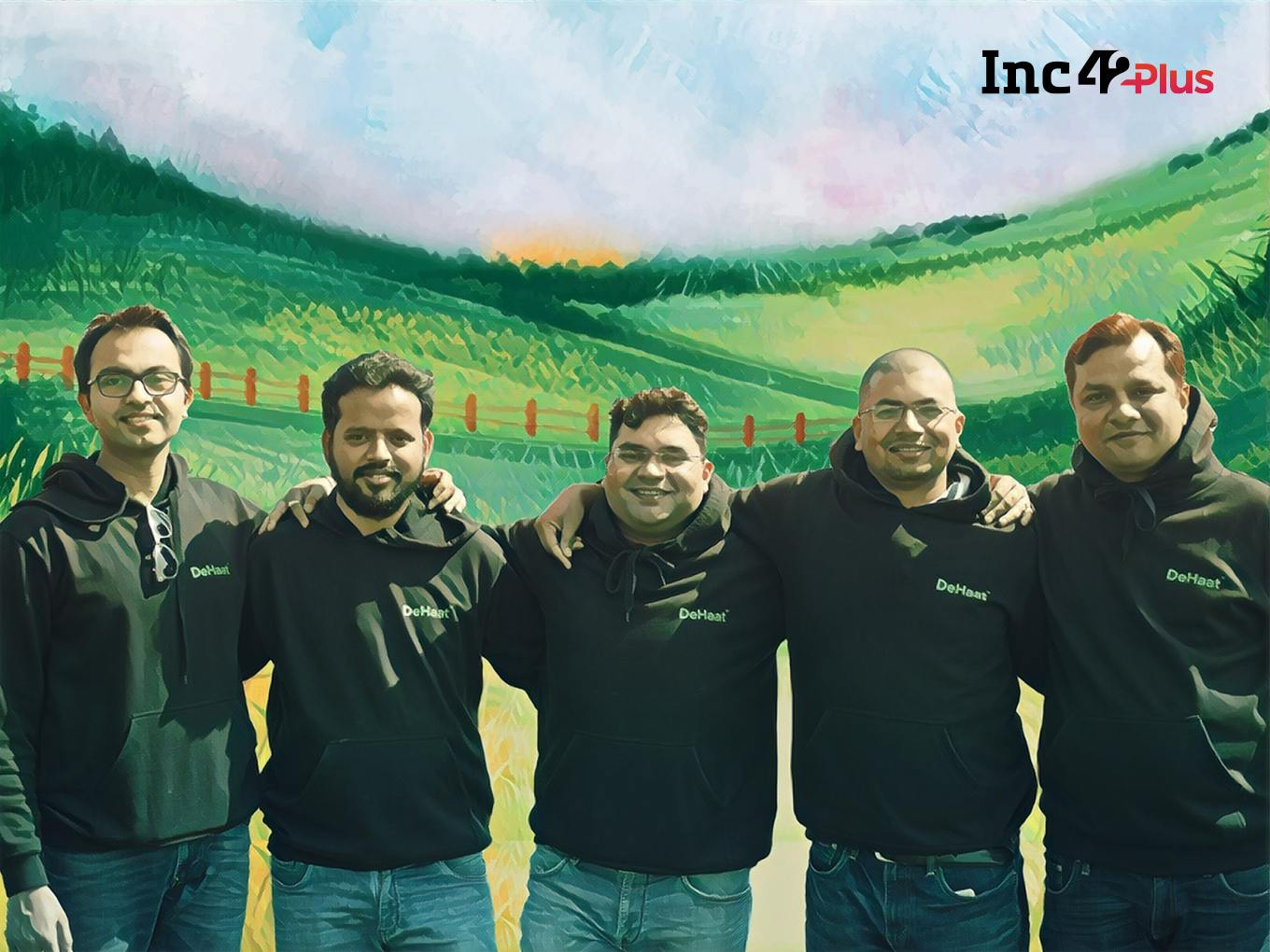
Investors in DeHaat’s Series D round include Sofina, Lightrock India, Temasek, Prosus Ventures, RTP Global, Sequoia Capital India and FMO
The startup claims to have noted a 5x growth in the last seven months, created a rural retail network of 3K+ microentrepreneurs and serve 650K+ farmers
With the fresh round, the plans to expand to Rajasthan, Maharashtra and Madhya Pradesh, invest in tech and expand its financial service portfolio
Omnivore-backed, Patna-based agritech startup DeHaat (also known as Green AgRevolution) has raised $115 Mn in Series D funding. Led by Sofina and Lightrock India, the round was co-invested in by Temasek. The round also saw participation from existing investors Prosus Ventures, RTP Global, Sequoia Capital India and FMO.
This is the largest round yet among agritech startups in India. The current round takes the valuation of the full-stack agritech startup to $500 Mn – $550 Mn.
Eyeing expansion beyond the current agriculture clusters, the agritech startup aims to use the funds to expand to Rajasthan, Maharashtra and Madhya Pradesh. It further plans to continue investing in tech and expand its financial service portfolio.
Founded in 2012 by Amrendra Singh, Shyam Sundar, Adarsh Srivastav & Shashank Kumar DeHaat offers end-to-end agricultural services to farmers, including distribution of high-quality agri-inputs, customised farm advisory, access to financial services, and market linkages for selling their produce.
The agritech startup claims to have noted a 5x growth in the last seven months and has created a rural retail network of more than 3,000 DeHaat microentrepreneurs for last-mile delivery. DeHaat claims to serve more than 650K farmers located across Bihar, UP, Jharkhand and Odisha.
It plans to onboard 5 Mn farmers by 2024.
Including this round, the startup has raised $160 Mn in equity across four rounds. In January 2021, DeHaat raised $30 Mn in a Series C funding round led by global consumer internet group Prosus Ventures.
Before that, it raised a $12 Mn Series A funding round, back in April 2020, to expand its reach to more than a million farmers by 2021. Its Series A round of $4.3 Mn was led by impact investor Omnivore. The startup has since grown from farmers’ marketing advisory to a full-stack agritech working in supply-chain, production efficiencies, agri-loans, crop insurance among others.
DeHaat has acquired two startups to date — VezaMart, a platform that builds farm management solutions for farmers and FarmGuide, which creates information symmetry in agriculture through ICT and data analytics techniques.
The Challenges Within The Agricultural Sector
India has more than 100 Mn farmers who are still struggling to access essential services such as agri-finance, the supply of agri inputs like seeds, fertilisers and farm equipment, and easy market access, mostly provided by agricultural value chains.
On the other hand, several agribusinesses are unable to sell their inputs directly to farmers. Other businesses cannot procure farm produce from farmers without going through multiple agents due to a complex, multilayer supply chain.
The lack of market access is one of the key reasons why farmers, who constitute 60% of the Indian population and contribute nearly 18% to the country’s GDP, are still miles away from sustainable agriculture.
Addressing the unorganised market are several startups such as DeHaat, Gramophone, Nofence, Krishify, Cropin, FarmLogs and SourceTrace, among others.
Recently, Indore-based Gramophone raised INR 75 Cr from Z3 Partners, Infoedge, Asha Impact and Siana Capital. In September this year, Omnivore (also an investor in DeHaat) backed BharatAgri in its $6.5 Mn Series A round. Recently, B2B agritech startup FarMart raised $10 Mn in a Series A round led by Matrix Partners India.
DeHaat’s biggest competitor is Walmart-backed Ninjacart, which last raised $10 Mn in its Series C round from Flipkart India and GEC3 in 2020.
According to Inc42 Plus, India’s addressable agritech market potential is expected to reach $24.1 Bn by 2025. Indian startups had tapped into only $204 Mn, or 1% in 2020.




 Fintech
Fintech Travel Tech
Travel Tech Electric Vehicle
Electric Vehicle Health Tech
Health Tech Edtech
Edtech IT
IT Logistics
Logistics Retail
Retail Ecommerce
Ecommerce Startup Ecosystem
Startup Ecosystem Enterprise Tech
Enterprise Tech Clean Tech
Clean Tech Consumer Internet
Consumer Internet Agritech
Agritech




























